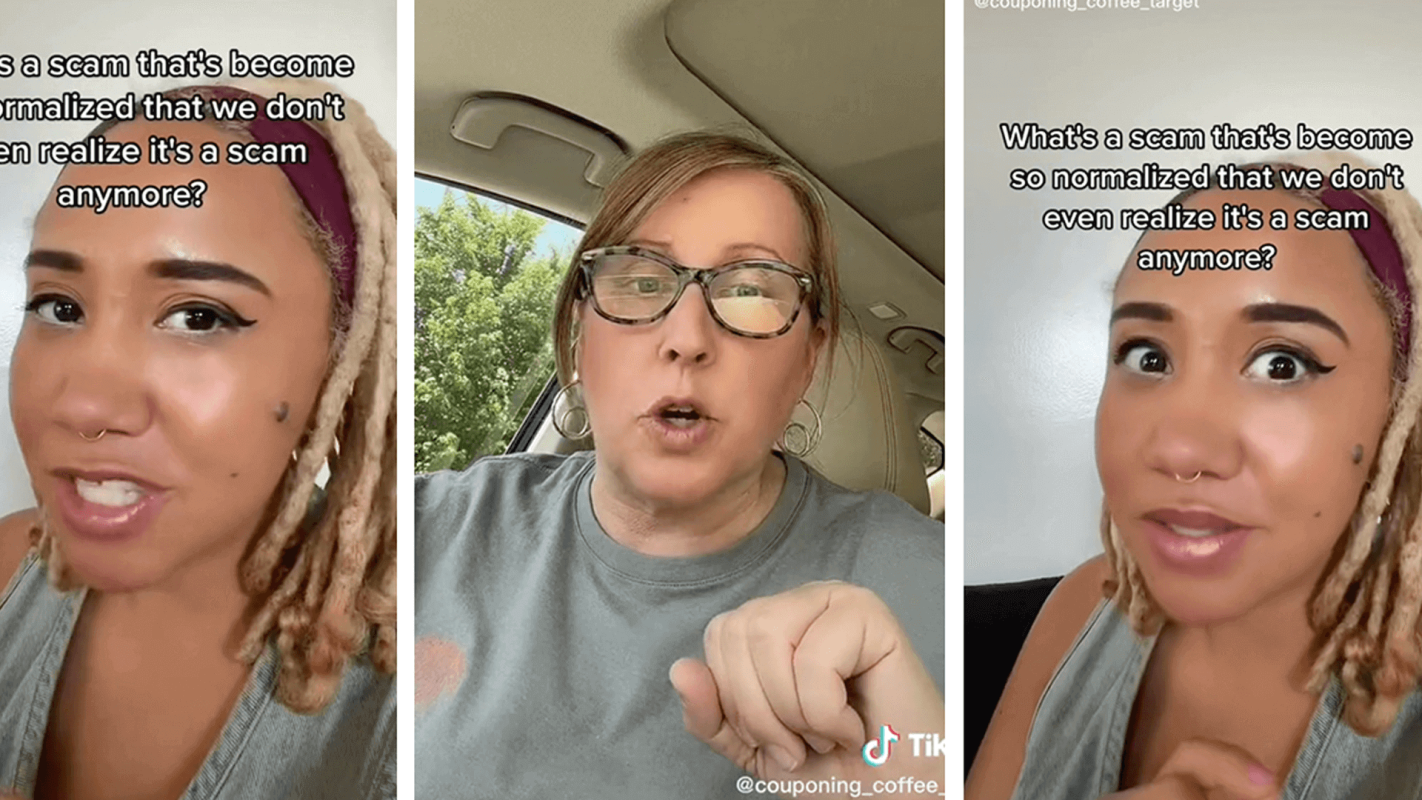In a recent viral clip, TikTok user Jessica (@couponing_coffee_target) warns followers about the little-known dangers that using fabric softener poses to not only your clothing, but to your washer machine as well.
"You've been conned into buying all this stuff, spending all this money," she says. "It's ruining your washing machine and it's ruining your clothes."
@couponing_coffee_target #stitch with @debtcollective #scam #laundry @Derrick @Consumer Reports @Renae @couponing_coffee_target @couponing_coffee_target ♬ Love You So - The King Khan & BBQ Show
She's right –– not only are fabric softeners completely unnecessary, but they also can do significant damage to your health, your clothes, and the environment. "This isn't just my opinion, this is from washing machine manufacturers, repair technicians, consumer reports –– everybody that's looking out for you," she says.
Many fabric softeners contain multiple harmful ingredients. The combination of chemicals used for softening, fragrance, color, and preservatives can cause a multitude of nasty effects, including asthma, allergies, skin irritation, and even reproductive harm. Additionally, fabric softeners frequently contain petroleum-based materials, which are difficult to break down and adversely affect marine life when they're dumped into the water.
On top of their potential detriments to your health and the planet, fabric softeners also wreck many types of clothing, causing them to wear out more quickly or become uncomfortable in the long run. Swimwear, athletic clothes, wool, linens, down-filled items, and baby clothes are among the numerous types of items that are especially susceptible to fabric softener damage.
Jessica says that in her research, she's come across many laundry machine repair technicians who cite fabric softeners as a primary culprit in machine malfunctions.
"The majority of repairs come from too much fabric softener [and] just fabric softener in general," she claims. "It's killing your machines … it's coating your clothes in wax."
In 2022, Consumer Reports published an interview with Rich Handel, a test engineer at Consumer Reports who specializes in laundry, who said his "number one tip" was ditching fabric softener.
"Fabric softener can create residue in your washing machine and contribute to mold growth (yuck), and over time can even make bedding and clothing more flammable," Handel said. "Dryer sheets may be somewhat better than liquid softener, but they can still add a residue that reduces the effectiveness of your dryer's moisture sensor, so you're better off ditching those, too."
@consumerreports CR test engineer Rich Handel says it's time to free yourself from the grips of fabric softener 🙌. Learn more at cr.org/laundry5things #laundrytok #cleantok #5thingsiwouldneverdo ♬ original sound - Consumer Reports
Luckily, Jessica has an easy, elegant alternative to fabric softeners that has similar effects without any of the consequences: distilled vinegar, which other sources verify as a cheaper, more sustainable alternative.
As the TikToker explains, you only need to use about two tablespoons of detergent plus "a little white distilled vinegar" in the wash, and then add wool balls in your dryer to make your clothes come out perfectly soft and fresh, all while avoiding machine damage.
"Everything is perfectly clean, and you're not ruining your machine," she adds. "Do it, and I'm telling you, you will fall in love with it, as well as save a ton of money."
Follow The Cool Down on Instagram and TikTok.








